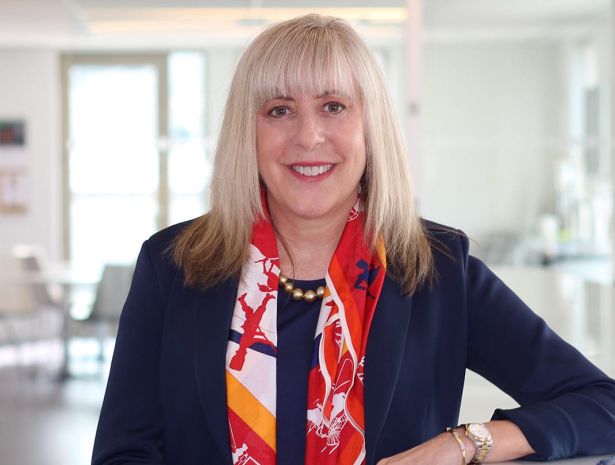
Kyle Schoppmann
Kyle Schoppmann
President of the Mid-Atlantic Division at CBRE

Kyle Schoppmann was already a major force in CBRE’s mid-Atlantic division when she was named its president in early June 2020, a promotion that also meant joining the executive committee of CBRE Americas.
Schoppmann, who joined CBRE in 2007, had overseen its mid-Atlantic division’s day-to-day operations for two years as its executive managing director, and played a key role in opening its Norfolk and Richmond beachheads.
She also helped organize the company’s move into new D.C. offices at JBG SMITH’s 1900 N Street NW in Dupont Circle — 10 days before the pandemic forced CBRE to empty said office.
“Fortunately, we were able to quickly pivot to remote work thanks to our new office technology—Zoom included,” Schoppmann said via email. “We found meaningful ways to collaborate remotely, train our professionals, and serve our clients.”
That included servicing on deals, great and small. A couple of the greats, according to Schoppmann: law firm Wiley Rein’s 166,000-square-foot lease at 2050 M Street in D.C. in June (CBRE represented the firm); and CIM Group’s $506 million purchase of the five-building Southern Towers residential complex in Alexandria in August — the largest multifamily deal in Virginia in 2020, one that CBRE also brokered.
Regarding those smaller deals that CBRE was behind, Schoppmann in particular cited the company’s work on behalf of a retail sector especially battered by the pandemic. “We represented Tatte bakery in several of their 2020 leases,” she said, “signaling their entry into the D.C. market, and it also happens to be one of my favorite new lunch spots.”
As for the near future, the mid-Atlantic leader of the world’s largest real estate brokerage and services firms sees a quicker and healthier recovery in life sciences, multifamily, industrial and data centers (the last two represent an increasingly busier share of the D.C.-area commercial real estate market).
Recovery might take a little longer for office, retail and hospitality, Schoppmann said. In particular, the office sector, which understandably dominates the core D.C. market — think law firms, lobbyists and the federal government — is still awaiting clarity about how much, and how frequently, tenants will use properties.
“Individual companies will come to different decisions on what this means to them in light of their specific circumstances,” Schoppmann said. “Flexibility will be key for all of us in navigating our ‘new normal.’”



